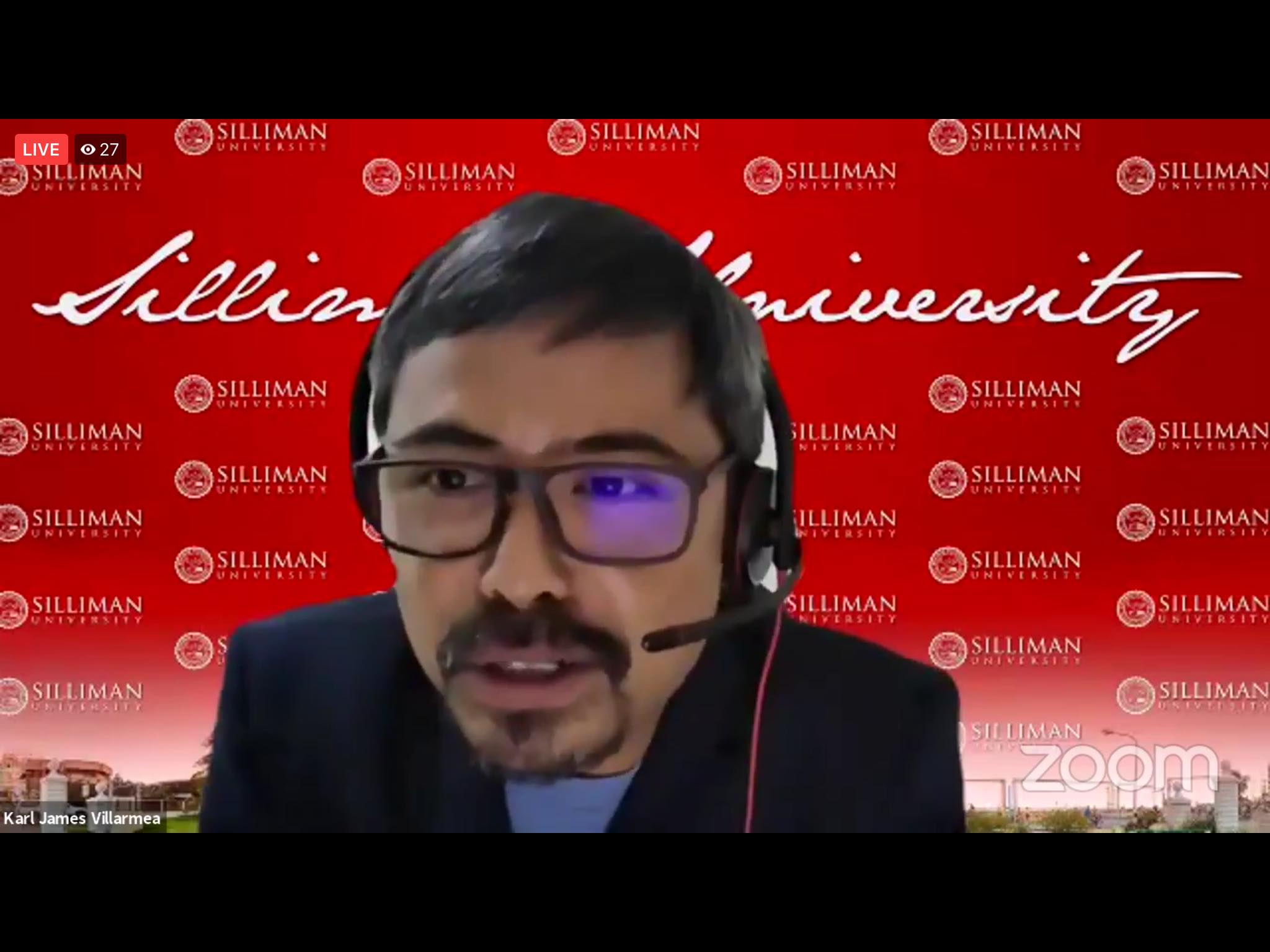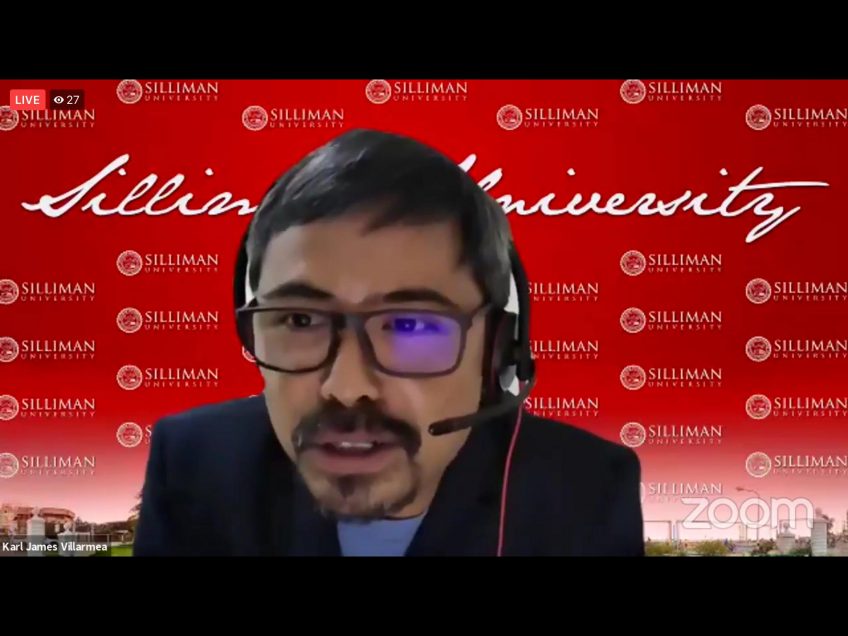
‘Human Rights is Center of Jesus’ Gospel,’ says SU Theologian
“Human rights [is] not an add-on to human life. This idea is really the heart of our Gospel. Human right is constitutive of (being) human. This is thoroughly biblical and messianic. This is what Jesus insists and asserts in the gospels,” shared Dr. Karl James E. Villarmea during an online forum held via ZOOM to mark the 72nd Anniversary of the United Nations’ Universal Declaration of Human Rights.

In his capacity as associate professor in Biblical Studies and Ethics at Silliman University (SU) Divinity School, Villarmea served as reactor during the forum entitled, “Prospects for Human Rights Today,” an installment of The Wednesday Forum (TWF) focused on the human rights situation in the Philippine context.
“The right to eat, have access to food, the right to heal and to be healed, the right to exorcise, and to be exorcised. Indeed, even the right to forgive and be forgiven. This is the (human) life of course for which Jesus declares and inaugurates,” Villarmea elaborated on the biblical foundations of human rights found specifically in the Gospel accounts.
Meanwhile, as the world marked the 72nd anniversary of the signing of the United Nations’ Universal Declaration of Human Rights this week, he also stressed that human rights is simply not about the universal declaration, which for him was stained by Eurocentrism. For Villarmea, human rights is truly the heart of the Gospel of Jesus.
Villarmea, who is currently teaching at the Divinity School, completed his PhD in Theology, Ethics, and Human Sciences from the Chicago Theological Seminary, USA in 2015.
The said installment of TWF was graced by two reputable speakers: Dr. Liberato “Levi” C. Bautista, head of the United Nations Office of the United Methodist Board of Church and Society, and Atty. Neri J. Colmenares, a human rights lawyer, activist, and a recipient of the International Bar Association Award for Outstanding Contribution by a Legal Practitioner to Human Rights.
Bautista gave an Ethico-Political Reflection and he shared, “When the dignity of a person–the likeness of God–is violated, God is displeased.”
He then added that human dignity is the inherent gift of fullness and wholeness to God’s beloved creatures and he calls this struggle for human rights as something that brings everyone “closer to that universality and indivisibility.” With this, he mentioned various rights now given to sectors often susceptible to violations namely: women, migrants, indigenous peoples, refugees, persons with disability, elderly people, minoritized populations including sexual minorities, many other rights were not given on a silver platter but were won, through a struggle.
“Every human right invoked is making real the interdependence of all human rights,” stated Bautista as one of his final notes during his talk.
On the other hand, Colmenares gave a talk on the human rights violations committed since the martial law regime of Marcos up to the Duterte incumbency.
TWF, since the martial law days, has become a venue for open discourse on various topics affecting the life of the country and its people. This was started at the United Church of Christ in the Philippines (UCCP) Cosmopolitan Church by Rev. Cirilo Rigos and former Sen. Jovito Salonga. At present, it is now under the leadership of its executive director, Pastor Alvaro Senturias, a Sillimanian and current administrative pastor of Paradahan UCCP.
“Prospects for Human Rights Today” was co-organized by the SU Divinity School and the Ecumenical Bishops’ Forum.


